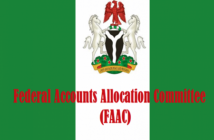In a major cost-cutting move, President Bola Tinubu has imposed a strict three-month ban on all foreign trips funded with public money for ministers, heads of government agencies, and other officials.
The ban, which takes effect from April 1, 2024, was aimed at reducing the rising expenses incurred by ministries, departments, and agencies (MDAs) on international travels and ensuring that cabinet members and heads of MDAs focus on their respective mandates for effective service delivery.
The directive was conveyed through a letter dated March 12, 2024, signed by the Chief of Staff to the President, Femi Gbajabiamila, and addressed to the Secretary to the Government of the Federation, George Akume.
The letter cited the “current economic challenges and the need for responsible fiscal management” as the driving factors behind the temporary measure.
“Mr. President has concerns about the rising cost of travel expenses borne by Ministries, Department and Agencies of Government as well as the growing need for cabinet members and heads of MDAs to focus on their respective mandates for effective service delivery,” the letter stated.
The ban is a part of Tinubu’s broader efforts to reduce government spending and promote fiscal discipline.
In January, the President had issued an order to reduce the number of people accompanying him on both local and foreign trips, capping the delegation size at 25 for domestic travels and 20 for international trips.
Under the new directive, any government official intending to undertake a public-funded foreign trip during the three-month period must seek and obtain presidential approval at least two weeks in advance.
Such trips will only be permitted if deemed “absolutely necessary.”
The letter emphasised that the temporary measure was “aimed at cost reduction in governance and intended as a cost-saving measure without compromising government functions.”
The ban is expected to generate significant savings for the Nigerian government and signals Tinubu’s commitment to fiscal prudence and prioritising service delivery over unnecessary expenditures.




